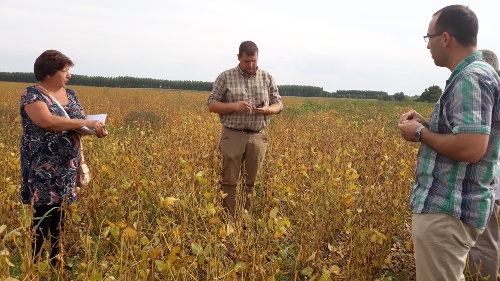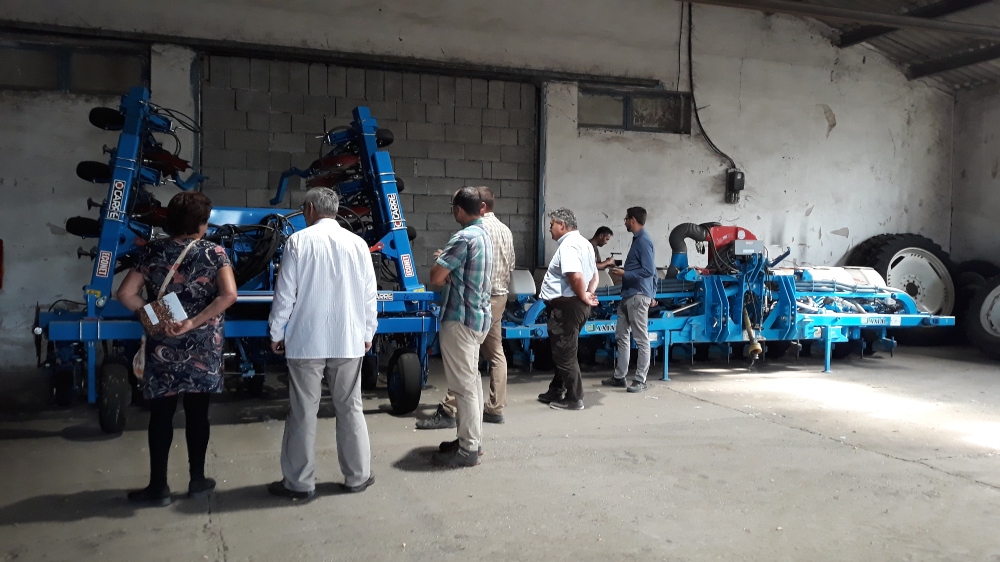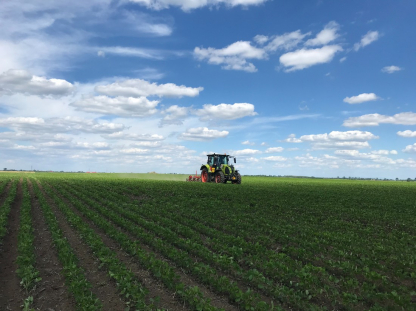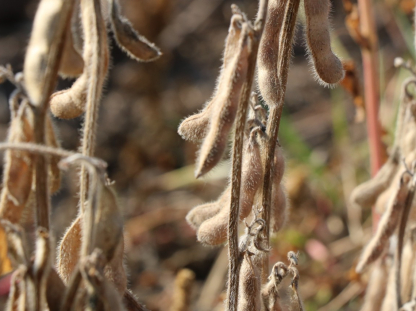Soybean cultivation professional day in Püski, Hungary
On 7 September 2021, in Püski and Győrsövényház (Hungary), the Hungarian Research Institute of Organic Agriculture (ÖMKi) held an event focusing on the cultivation of organic soy, in conjunction with the Hungarian Soy and Protein Plant Association, which introduced a number of new varieties.
Following this introductory overview, in which the characteristics of over 20 soybean varieties were discussed with reference to location, attendees were shown around several plots where the EIP-AGRI “Development of Advanced Techniques for Organic and Low-Input Soy Cultivation” project, which is coordinated by ÖMKi, is currently being conducted. Here, visitors could inspect plots which form part of the project, and which are being cultivated using low-input techniques. The project entails the sowing of five different soybean varieties, in different parts of the country and using different techniques.
The project also includes early ripening varieties that have already been tested in conventional cultivation, and which also show promise from the perspective of organic agriculture. These include ES Mentor, which may be considered the standard early-ripening variety, or Aires, which has a low trypsin inhibitor content and can be used as feed even without pre-processing, making it particularly attractive to farmers who are growing soy to feed their own livestock and do not have processing capabilities.
On other farms these varieties have been sown using either organic methods, or else in parallel plots using organic and conventional techniques, making it possible to determine the varietal characteristics most suitable for organic production. This year tested the adaptability of varieties, as an exceptionally dry spring was followed by a summer in which drought conditions frequently predominated. The area around Mosonmagyaróvár (northwestern Hungary) was no exception in this regard, though at this location it was possible to use irrigation, allowing the yield potential of the varieties to be demonstrated. Compared to last year, more varieties had matured and dried to the point of being suitable for harvest by the time the specialist day was held, especially the very early varieties.
Following the visit on the fields, we held a discussion on the development opportunities and critical points regarding organic soybean production, in connection with the ÖMKi DiverIMPACTS project. Organic soy producers, seed distributors and sectoral integrators were all represented. We tried to summarize the critical points which, if solved, would quicken the pace at which organic soy is produced, increase the efficiency of production, and improve the level of processing. Such critical points include, for example, the lack of integration, the market vulnerability of smaller-volume producers, and, in many cases, the isolation of market-chain stakeholders.
Following the discussion, we held a field inspection and workshop in connection with the ÖMKi MNVH project at an organic farm where soy has been continuously included in the crop rotation in recent years, meaning that they have many years of experience in organic soybean production. Participants learned that this presupposes the use of state-of-the-art agricultural technology adapted to the crop, such as an adjustable row spacing machine, a camera-controlled cultivator, and an adjustable-tine Treffler weed comb, which is also regularly used for the blind sowing of soy. The combined, successive use of the newly acquired rotary hoe, which cultivates the entire surface, and the weed comb, also contributes to successful weed control, and weeds can be significantly reduced in the area under cultivation even when the level of development is more advanced.

The soybean variety currently produced on the farm is sold abroad to the food industry, but as the farm also has its own cleaning and heat treatment capabilities, it can feed the leftovers from the cleaning process to its own livestock. Guaranteed sales and in-house processing also contribute to economic efficiency, as does the fact that the volume cultivated is significant, with hundreds of hectares worth of soybeans grown each year. The farm is not irrigated, so annual conditions have a significant impact on yields, though due to their favourable geographical location, these virtually always exceed two tons per hectare.
During the informal professional discussion, questions were also raised on several critical points related to technology, including sowing technology and weed control. Participants considered exchanges of experience such as these to be very useful, and were of the opinion that similar opportunities are needed in the future.
A video about this specialist day and the techniques of organic soybean production was also produced, and will soon be available on our YouTube channel.
.jpg)







